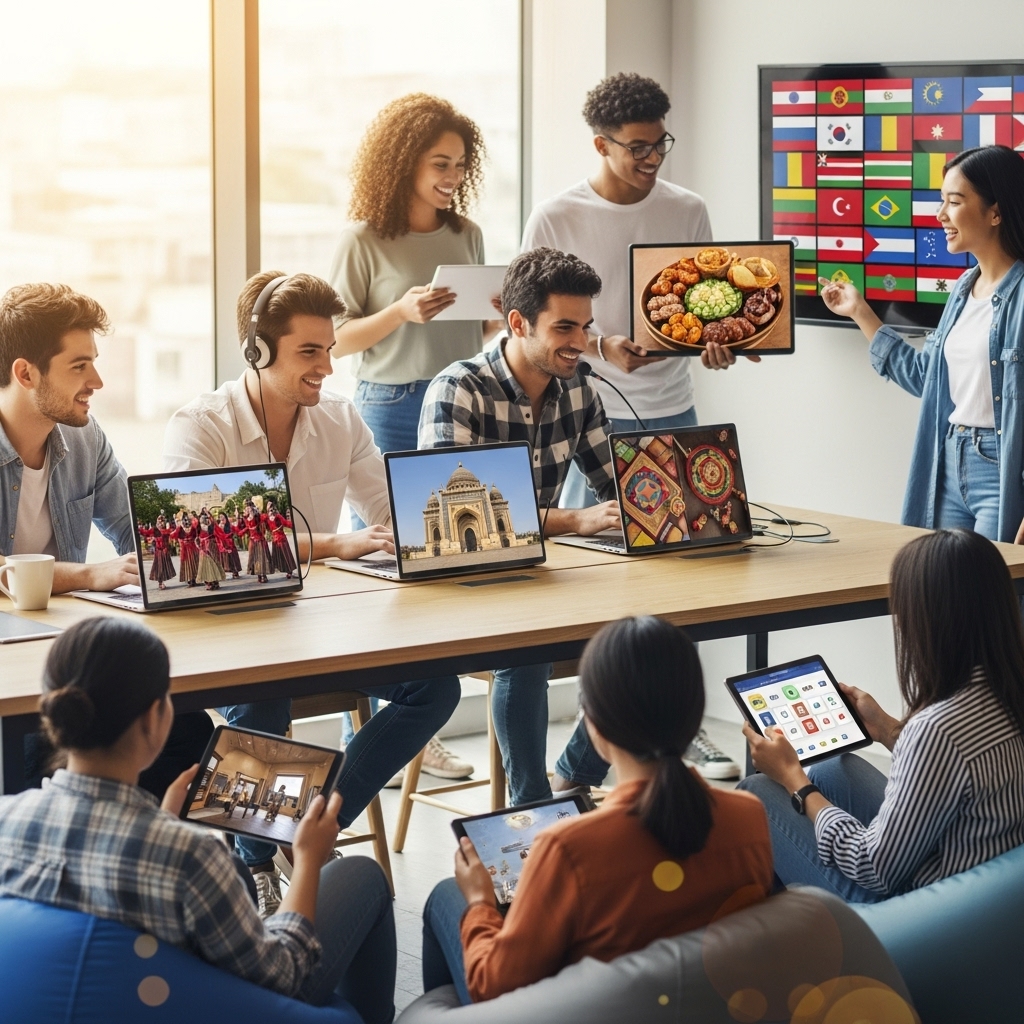Have you ever wondered how technology can bring people closer to their roots? That’s exactly what a cultural activities club does — it blends culture with innovation, letting people from different backgrounds share, learn, and celebrate traditions together.
Let’s explore how tech is giving a modern twist to cultural experiences and why joining a club like this might be one of the best things you can do for your creativity and community spirit.
Table of Contents

What Is a Cultural Activities Club?
A cultural activities club is a space (online or offline) where people come together to celebrate art, music, festivals, and traditions from various cultures.
But here’s where it gets interesting — in today’s digital world, many of these clubs use technology to reach a global audience.
From virtual Diwali celebrations to Zoom-based African drumming workshops — technology is making culture more accessible than ever before.

How Technology Is Transforming Cultural Clubs
Let’s be honest — we’re living in a world where everything is just a tap away. So, why not culture too?
Here are a few ways technology is reshaping cultural activities clubs:
1. Virtual Events and Festivals
You no longer need to travel miles to attend a traditional event. Platforms like Zoom, YouTube Live, and even VR apps let people attend digital cultural celebrations from anywhere.
Example: A college in California hosted a “Virtual World Culture Day” where students from 10+ countries performed online — complete with live music and digital backgrounds!
2. Social Media Storytelling
Instagram reels, TikTok videos, and YouTube shorts are helping people share their cultural art, recipes, and dances globally.
It’s not just fun — it’s also cultural preservation, powered by tech.
3. AI and Language Translation
Ever felt lost in translation? AI-powered tools like Google Translate or DeepL are breaking down language barriers, allowing cross-cultural communication like never before.
4. Online Workshops and E-Learning
Cultural clubs are now offering online classes for everything from painting and cooking to folk dance and storytelling — all through apps and e-learning platforms.

Why You Should Join or Start a Cultural Activities Club
Whether you’re a student, tech enthusiast, or simply curious about the world — joining a cultural activities club is a great idea.
Here’s why:
- You connect with diverse people. Learn directly from people who live and breathe their traditions.
- It builds soft skills. Collaboration, empathy, and communication — all in one place.
- You explore creativity. Tech lets you design posters, record podcasts, or even host VR exhibitions.
- It enhances your resume. Employers love people who can connect tech with human experiences.
How to Start a Cultural Activities Club (Even Online)
Want to create your own? Here’s a simple roadmap:
- Choose a Focus: Will it be about global art, food, languages, or festivals?
- Use Online Tools: Platforms like Discord, Slack, or Facebook Groups are perfect for starting out.
- Host Virtual Events: Begin with small sessions — like a “Cultural Movie Night” or “Traditional Recipe Day.”
- Promote on Social Media: Use short videos and blog updates to grow your community.
- Collaborate: Partner with schools, NGOs, or cultural influencers to reach more people.
Pro tip: Keep your club inclusive. People love joining communities where everyone’s story matters.

Real-Life Example
Take the Tech4Culture Club at a New York university. What started as a small student group grew into a global network. They host virtual cultural hackathons, where people use apps and AI to solve real cultural challenges — like digital archiving of traditional art.
That’s how a cultural activities club blends technology with humanity beautifully.
Final Thoughts
Technology doesn’t replace culture — it amplifies it.
When you join or create a cultural activities club, you’re not just sharing traditions — you’re preserving them for the next generation in a smarter, more connected way.
So go ahead — explore, create, and celebrate the beauty of diversity through tech.
Because culture is not about where you’re from, it’s about what connects us all.
